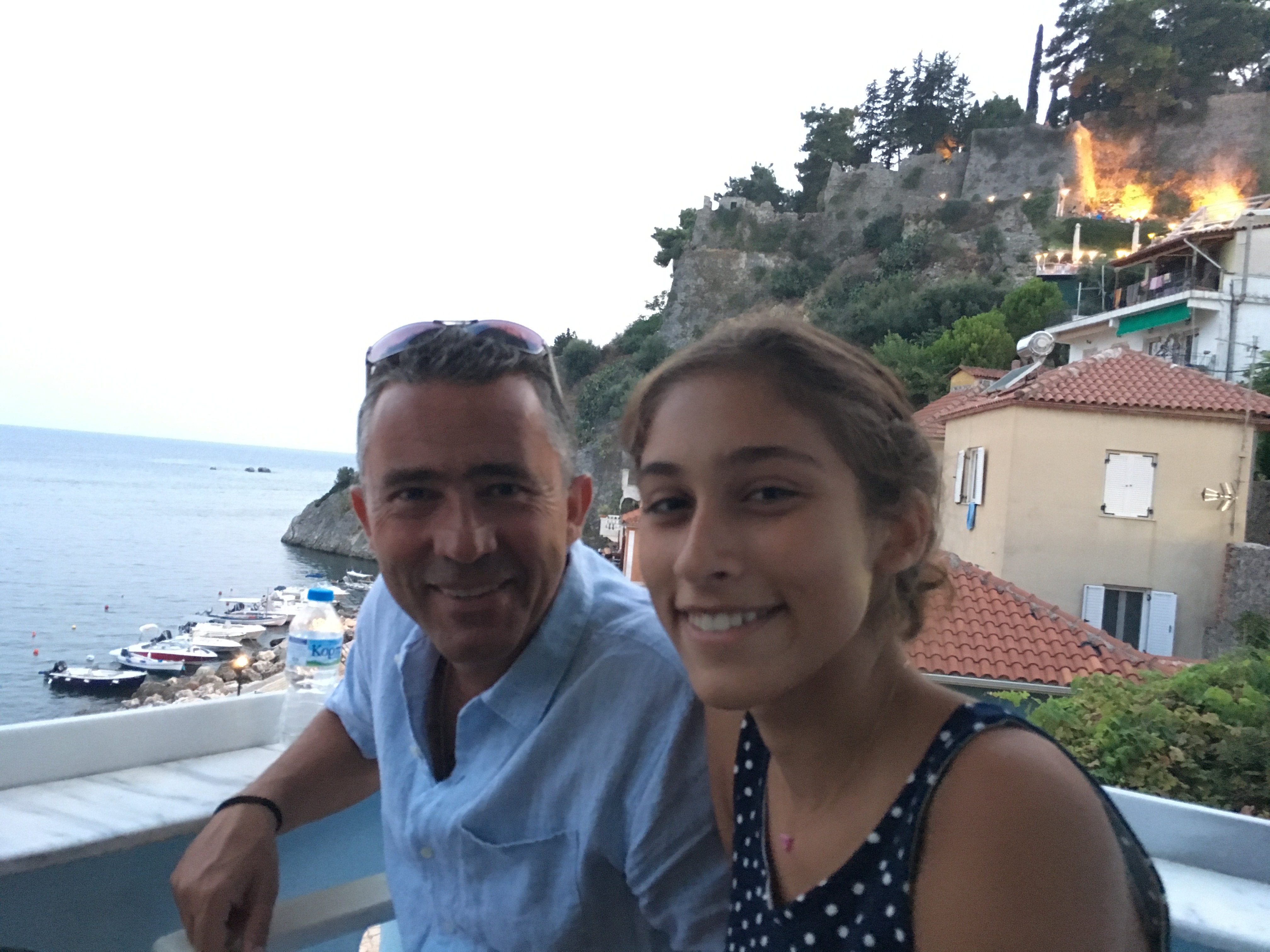
A University of Nebraska–Lincoln professor’s new book is primed to become a trusted resource for academics and policy analysts while providing the opportunity for students in need in the College of Agricultural Sciences and Natural Resources to gain vital support.
When Konstantinos Giannakas, Harold W. Eberhard Distinguished Professor of Agricultural Economics, releases his book, “Accounting for Agent Heterogeneity in Market and Policy Analysis,” on Dec. 18, it will be available at no charge. Instead, Giannakas will request that readers consider donating to the Astir CASNR Emergency Student Aid Fund that supports students with emergency needs.
The fund was first established by Giannakas’ daughter, Ritsa, in 2015, when she was 13.
“Ritsa knew that there were students struggling financially in the pursuit of their educational dream, so she asked that her Christmas and birthday gifts be money instead of materialistic items that year,” Konstantinos said.
The result became the foundational gift for the CASNR Starfish Fund, now known as the Astir CASNR Emergency Student Aid Fund.
“Even if I don’t have the opportunity to positively impact the world just yet, for one person I could have changed everything — and for now, that’s good enough for me,” Ritsa said.
Ritsa is a junior at Lincoln East High School and still contributes to the fund.
Steve Waller, interim director of the Center for Grassland Studies, served as CASNR’s dean at the time the fund was established. He witnessed first-hand how Ritsa’s contribution helped students with medical and food expenses.
“Ritsa’s thoughtfulness and compassion for those that may struggle financially as they pursue a college education is remarkable,” Waller said. “She is truly mature beyond her years and a wonderful role model for people of all ages.”
The establishment of the fund came around the same time that a student finances survey found one in three Nebraska students regularly worry about not having enough food to eat.
The Astir CASNR Emergency Student Aid Fund enables the dean of the college to award stipends to students who are at risk of disruption to their education as the result of financial hardship such as the loss of a parent, job loss or medical crisis.
Moved by his daughter’s generosity, Konstantinos wanted to do something to support students in need.
“I made the decision to make my upcoming book available for free to not only raise money for the fund, but to also raise awareness of this very important issue,” he said.
Giannakas has spent the past two years writing his book, which is based off of 20 years of research. It focuses on consumer heterogeneity, or the differences in consumer preferences for different products, and producer heterogeneity, or the differences in producer returns from the production of different crops due to differences in factors such as education, experience, management skills, land and technology adopted. The book presents an integrated, multi-market framework of market and policy analysis that accounts for these differences.
According to Giannakas, the explicit consideration of consumer and producer heterogeneity enables the analysis to identify the effects of different market changes and policies on different consumers and producers.
“This is important as it better measures the economic impacts of changes in market conditions and policies that can lead to improved policy design, enhanced efficiency, increased effectiveness and reduced policy failures,” Giannakas said.
A free download of “Accounting for Agent Heterogeneity in Market and Policy Analysis” is available here, where readers can also make a tax-deductible charitable contribution to the Astir CASNR Emergency Student Aid Fund, housed by the University of Nebraska Foundation. All donations will be immediately available to help students in need.








